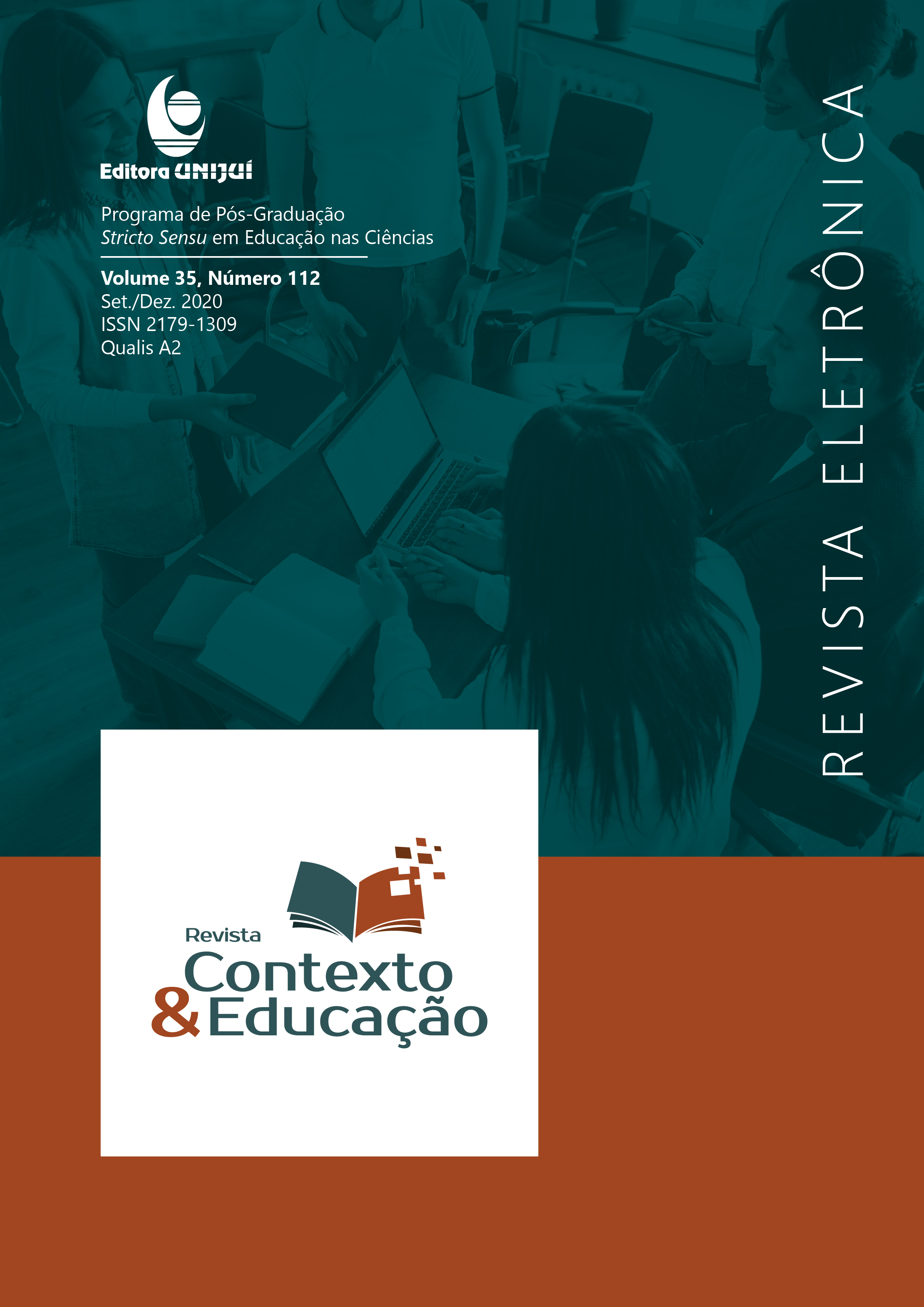A FILOSOFIA E A HISTÓRIA DA CIÊNCIA COMO ESTRATÉGIA PARA RESSIGNIFICAR O ENSINO NO CURRÍCULO INTEGRADO
DOI:
https://doi.org/10.21527/2179-1309.2020.112.10-28Keywords:
Ciência, História da Ciência, Filosofia da Ciência, Currículo Integrado.Abstract
O Currículo Integrado exige uma abordagem interdisciplinar dos conceitos e conteúdos por parte dos docentes, tendo em vista a necessidade de que sejam constituídos pontes e diálogos entre os diferentes saberes, seja pelas disciplinas básicas ou técnicas. A abordagem de conceitos mais dedutivos formais em sala de aula pode produzir no estudante desencantamento se a ciência, a técnica e a tecnologia não forem humanizadas. A História e a Filosofia da Ciência podem ser o caminho mais eficiente para oportunizar uma experiência mais próxima da realidade do discente. Humanizar-se e humanizar a ciência e a tecnologia são meios eficazes para incluir no ato educativo, junto com os conteúdos e conceitos a serem trabalhados, a possibilidade de que o discente se faça as perguntas originárias, filosóficas e científicas que foram feitas através da história e se sinta convocado para ser produtor de conhecimento, não apenas um espectador de aulas sobre ciência e tecnologia. Nada pode ser mais eficaz do que discente se sentir motivado a pensar de modo filosófico e científico o mundo da ciência e da tecnologia à luz da interdisciplinaridade, algo inerente ao Currículo Integrado.
Downloads
Published
How to Cite
Issue
Section
License
By publishing in Revista Contexto & Educação, authors agree to the following terms:
All works are published under the Creative Commons Attribution 4.0 International License (CC BY 4.0), which allows:
Sharing — to copy and redistribute the material in any medium or format;
Adaptation — to remix, transform, and build upon the material for any purpose, even commercially.
These permissions are irrevocable, provided that the following terms are respected:
Attribution — authors must be properly credited, a link to the license must be provided, and any changes made must be indicated.
No additional restrictions — no legal or technological measures may be applied that legally restrict others from doing anything the license permits.
Notices:
The license does not apply to elements that are in the public domain or covered by legal exceptions.
The license does not grant all necessary rights for specific uses (e.g., image rights, privacy, or moral rights).
The journal is not responsible for the opinions expressed in the articles, which are the sole responsibility of the authors. The Editor, with the support of the Editorial Board, reserves the right to suggest or request modifications when necessary.
Only original scientific articles presenting research results of interest that have not been previously published or simultaneously submitted to another journal with the same purpose will be accepted.
Mentions of trademarks or specific products are intended solely for identification purposes and do not imply any promotional relationship by the authors or the journal.
License Agreement (for articles published from October 2025): Authors retain the copyright to their article and grant Revista Contexto & Educação the right of first publication.


